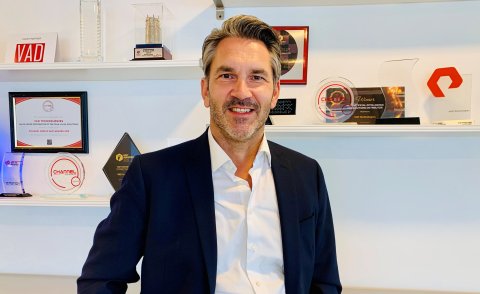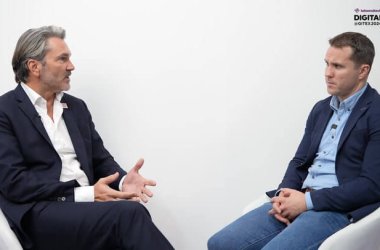
Mario Veljovic, General Manager at VAD Technologies, discusses how the company is keeping pace with evolving technologies to enhance customer experience and ease the digital transformation journey of businesses in the region.
Can you outline to our readers how your company has harnessed cutting-edge technologies to transform how you conduct your day-to-day operations to deliver the ‘experience’ that your customers, end-users, and partners’ demand in the experience economy?
Even though VAD Technologies is mainly involved in scouting and promoting disruptive technologies that will help Businesses of all sizes to reduce their Total Cost of Ownership (TCO) and improve their operational efficiency, even we, as an important element in the overall ICT ecosystem, have to evolve and use technology to meet our partner’s expectations in regard to “Ease of Doing Business with.” VAD Technologies has invested over the last 10 years to continuously improve its online marketplace to allow vendor and channel partners to transact “Everything as a Service” seamlessly. Channel Partners are enabled to use the same platform to extend their products, solutions and customised services to their client, which makes the entire process fast and easy. Furthermore, we make extensive use of our CRM System to ensure partners are proactively alerted about upcoming service renewals and potential Tech-Refresh Opportunities. Last, but not least, our AI empowered CRM will allow us to analyse past transactions and predict accurately the future business expectations, especially as more and more of our business becomes recurring, which is one of our KPIs.
OpenAI and ChatGPT are all the rage, and these new AI integrations have been tipped to fundamentally reshape all major industries as we know them. What is your view on OpenAI, are you excited by the new opportunities that it will present, or do you think more regulation is needed to control its impact on society?
Every new technology and, in all honesty, every evolution has its pros and cons. We must keep up with the pace of the development and adapt to the new realities. While Regulations could be the right approach, it could lead for more space of Criminals to operate and identify this as an Opportunity. Rather than over-regulating, we must invest into education. Not just for the new generation, but the generation in-charge. Last but not least, the new realities of using AI brings back focus to us Humans itself and their ability of using Common-sense and their Emotional Intelligence. Those are the 2 main factors I would encourage everyone to invest into.
There has been a swathe of digital and cloud transformation projects in the Middle East over the last 3-5 years. However, many have struggled with the demands of cloud transformation, especially legacy-heavy players. What are the key processes that enterprises need to adopt to ensure a successful transformation journey?
From what we have observed over the years, we can only advise clients to choose the right partner for their Digital Transformation journey. And I need to emphasise that it is always a “Journey” and should not be seen as a “Project”. A Project by definition has a pre-set end date, while a journey is ongoing. It’s like a marriage – you need to choose the right partner for life. This is especially a challenge here in the Middle East with a strong expatriate-based workforce, which sees a higher than global standard of fluctuation.
In your expert opinion, what do you view as the biggest problem facing enterprises in the IT and technology industry across the Middle East?
Certainly, recruiting and retaining great talent is a massive challenge, if not the biggest for all kinds of businesses. However, the region and the UAE have created a great environment to allow more and more Talent to seriously consider the region as their home and allow them to grow their professional career. In addition, the sudden increase in financing cost has impacted businesses, especially in the ICT sector, where profit margins have traditionally been wafer-thin.
This supplement is titled Tech Vision, so with that in mind, what do you think the future holds for the IT and tech sectors across the Middle East, what will be the key trends and technologies that will really champion change over the next ‘digital decade’?
The decade and beyond looks very promising for the Middle East. While recent developments in region make you worry, overall, many of the long-standing conflicts got resolved, which creates a climate of prosperity. Furthermore, the governments of the region found a good balance between technology adoption and regulations, which enables limitless innovation and allows them to take a leading role on the global stage in the “Digital Decade”.





